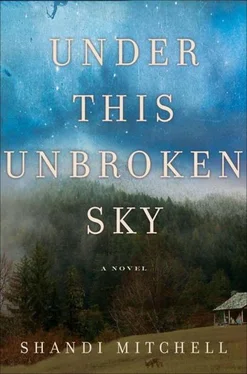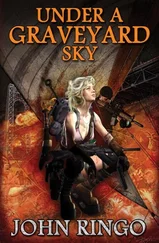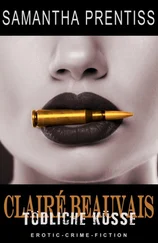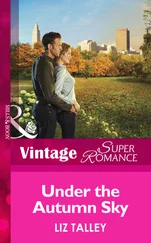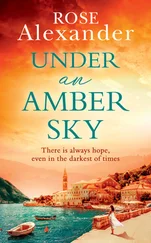“You think I’m cheating you?” The man puffs his chest.
Teodor points again at the paper. “Ninety-three cents.”
The fat man waves him away. “Those were last month’s prices. That’s for grade one. This is grade four. Sixty-three cents a bushel.”
Teodor grabs a handful of wheat. “Good grain. Number one.”
“That’s the price. Tell him he can take it to Bonnyville, what’s that—fifty miles away? But the price ain’t going to be any better. He’s lucky I’m offering this much. But if he thinks he can get a better deal…”
“Seventy cents,” Myron blurts. “He wants seventy cents.”
“No!” Teodor sputters in Ukrainian, “I want full price!”
Myron tries to reason: “He’s gonna give us nothing. We can’t take it back! You know we can’t.”
Teodor crouches down and picks up a handful of wheat. It’s good wheat. Grade one. “Tie up the bags,” he calmly tells Myron.
“Tato…”
“Do it.” Teodor twists a sack closed and wraps it with twine. Myron looks helplessly to the fat man.
“Crazy bohunk.” The fat man shakes his head. “Seventy cents.”
Teodor doesn’t look up. “Eighty.”
“Seventy-five and that’s it.” The fat man recalculates his profit. “Make up your mind, it’s almost dinnertime.”
“Seventy-five cents.” Teodor recalculates his losses. He pulls the string off and tips the bag. The wheat spills through the grid. Myron is surprised how quickly it is gone.
AFTER TEODOR LEAVES, MARIA FINDS THE SOURCE OF the mildew. Balled up and stuffed in the corner of the chest—her mother’s blanket. Its ivory-and-salmon flowers obscured by splotches of gray-green mold.
Months and months, hand spinning and dyeing the wool; over a year weaving the intricate patterns; all done by her mother’s arthritic hands.
Her mother said she wouldn’t leave her beloved Ukraïna, that she was too old to start again. But with her gnarled hands, she would have been denied entry. No defects allowed in Canada. They had agreed not to say good-bye. No tears, no chance to raise suspicions. Maria didn’t even tell her father they were leaving. He might have told. The night they were to run, her mother came to the door. She held up a warning finger—no words—and thrust a bundle into Maria’s arms. It was the blanket.
Maria opens another layer of the fabric, revealing the grass stains and red smears.
“What’s this?” escapes her lips.
It is Katya who chimes, “Raspberries.”
Sofia, who is rolling dough for the pyrohy, stops mid-roll. Her heart begins to pound, her mouth grows parched as she remembers that hot, sunny summer day picnicking at the lake. Katya rambles on about fish and bubbles and holding up her dress and catching a minnow in her hand… not once does she mention Sofia’s name. Not even when Maria asks through clenched teeth: “Who else was with you?”
Katya answers, “Just me.”
Maria drags her to the bedroom, screaming about taking something that didn’t belong to her and that her father would deal with her when he got home, because she is afraid of what she might do to her. Her hand tight around her daughter’s arm, she worries that she will bruise her, but God forgive her, she doesn’t let go. When Katya starts to whimper, Maria yells at her to stop, that she has nothing to cry about, she isn’t the one who is hurt, and that she best get on her knees and beg for forgiveness. And Katya does, even though she doesn’t know what she’s done wrong.
Dania offers to wash the blanket. Maria tells her to burn it, get it out of the house. But Dania scrubs it with snow and hangs it between two pine trees to air, with plans to wash it properly tomorrow.
Sofia keeps rolling the dough. She tells herself, Katya’s little. They won’t punish her hard. Not like they would with me. She’s older, she’s supposed to be like Dania and take care of the smaller ones. Sofia rolls harder to block her mother’s sobs.
It is dark when Teodor and Myron get back. Ivan sees them first from his perch at the window. Maria can barely contain him long enough to wrap the scarf around his neck and pull the hat down over his ears, but when it comes time for his mittens, they are nowhere to be found. When he is warned that he can’t go outside to greet his father unless he finds his mittens, he breaks down and confesses that he lost them. He is promptly stripped of his winter clothes and sent to stand in the corner.
When Teodor and Myron return home, the women set the dinner plates in silence. Each of them senses the tension that will shatter, injuring them all, if anyone dare ask, “How was your day?”
Myron eats quickly so he can finish chopping the wood. He can’t bear his father’s silence anymore. Ivan has fallen asleep in the corner and Dania carries him to bed. She then excuses herself. Sofia, who wants more than anything to see the money and ask her papa for a new dress from the Sears Roebuck catalog, hides the advertisement under her pillow, thinking it best to wait.
All the children are in bed early, but only the smallest are asleep. The others’ ears are straining to hear the sound of money. Maria lights the oil lamp and sets it on the table. She sits across from Teodor, who is finishing a lingering smoke. He butts the cigarette and reaches in his pocket. He lays the money on the table. Forty-two dollars and seventy-five cents. He sets ten dollars aside.
“This is already spoken for.” He doesn’t meet her eyes.
Thirty-two dollars and seventy-five cents. That’s it. She wants to cry. She feels it climb up her throat and push at the back of her eyes. Her cheeks flush. Don’t , she reprimands herself. Don’t. She takes a deep breath. “What do we have to get?”
Teodor’s fingers rub the rough tabletop. “We need a harness.”
Maria counts out the money.
IT IS THREE IN THE MORNING WHEN THE FINAL PENNY is divvied among the piles. Teodor and Maria sit exhausted from their negotiations. Teodor will have to wait for a new shovel, hardware for the granary, and getting the horse shod. Everyone will have to make do with the boots they have, save for Ivan and Petro, who can’t get through the winter with what they have now. Lesya won’t get new shoes. Only the eldest will get new long underwear and winter stockings. Their old winter underwear will be passed down. Myron won’t get his fur-lined hat. Maria will knit Ivan new mittens and socks for the men. She will try to stretch the fabric to make three heavy skirts for her daughters.
She will need to patch the men’s pants again. There won’t be enough meat to get through the winter, but hopefully the potatoes and rice will carry them through. Maria has already evaluated the preserves and vegetables, and noted the ones she will try to trade in February for more meat. She picks up the remaining thirteen cents and squirrels it away in the tobacco can on the highest shelf. She calculates the pennies, nickels, and dimes. They have a dollar and eighteen cents for emergencies.
Teodor checks in on the girls. They sleep blissfully unaware. Katya and Dania are snuggled back-to-back. Little Katya’s legs are stretched out against Sofia, who is pushed to the edge of the bed. Where will the baby sleep if it’s a girl? he wonders. He should build a cradle. He has a birch log. He was saving it to make Maria a cupboard, but that will have to wait. Dania rolls over and wraps her arm around her little sister. Her long blond hair is loose around her face. She is almost a woman. Soon she’ll marry and have her own farm. She’ll be like her mother. Practical and sensible. She’ll make do with what she has.
I’ll keep you safe , he wants to tell them. He tucks Sofia’s arm back in. As he pulls the quilt up, he notices the piece of paper protruding from under her pillow. He slides it out and unfolds the catalog page, Girls and Misses’ Cloth Dresses . Circled, in the bottom corner, is an illustration of a young girl, her arms tucked behind her back, her head tilted demurely, her hair short and curled. Teodor reads slowly, stumbling over the odd words. Girls’ Dress made of all-wool flannel, bolero effect, shoulder flaps, high-standing collar and band in front are made of black velvet, trimmed with white cord. We can furnish this dress in royal blue and red. Price $3.75.
Читать дальше
